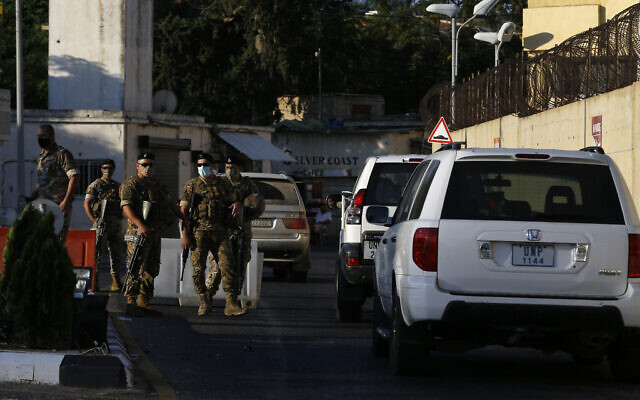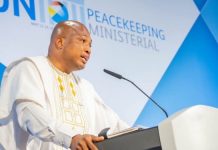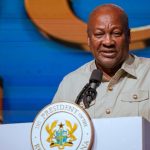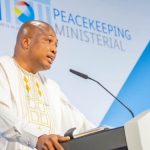Lebanon began offshore drilling earlier this year and is expected to start drilling for gas in the disputed area in the coming months.
Lebanese President Michel Aoun also appeared to rule out any chance that the talks could lead to normalization with Israel.
“President Aoun stressed that these negotiations are technical and specific to the demarcation of maritime borders, and that discussions should be limited to this specific issue,” the official Lebanese National News Agency reported Tuesday, after Aoun met with his delegation to the talks.

The talks were announced on October 1 by US Secretary of State Mike Pompeo, who hailed them as “historic.”
That both Jerusalem and Beirut agreed to sit down for negotiations has the potential to “yield greater stability, security, and prosperity for Lebanese and Israeli citizens alike,” Pompeo said at the time. “Today’s announcement is a vital step forward that serves the interests of Lebanon and Israel, of the region, and of the United States.”
Wednesday’s meeting marked the first time in more than 30 years “since any meaningful negotiations took place between Lebanon and Israel,” according to Alan Baker, a former legal adviser of Israel’s Foreign Ministry.
“The negotiations are intended to cover a disputed 330-square-mile area (860 square kilometers) straddling the maritime border area between them in the Eastern Mediterranean, rich with natural gas fields,” Baker, who participated in bilateral talks between Israel and Lebanon in 1982-3 and 1991-3, wrote in a paper.
“Both states claim that the area concerned is within their own respective ‘exclusive economic zone’ and ‘continental shelf,’ theoretical 200-nautical mile zones off their coast within which, pursuant to the 1982 UN Convention on the Law of the Sea (UNCLOS), coastal states enjoy exclusive rights to exploit and benefit from natural resources,” he wrote.
US Assistant Secretary of State for Near Eastern Affairs David Schenker presided over the meeting. He has been shuttling between Jerusalem and Beirut in recent months in an effort to reach an agreement where previous administrations have failed.
US Ambassador to Algeria John Desrocher served as the US mediator for the course of the negotiations, which were hosted by UN Special Coordinator for Lebanon Jan Kubis.
The “framework agreement to commence discussions on the maritime boundary is a vital step forward that offers the potential to yield greater stability, security, and prosperity for Lebanese and Israeli citizens alike,” the US State Department said in a statement Tuesday.
On Monday, Aoun’s office said the four-member Lebanese delegation would be headed by air force Brig. Gen. Bassam Yassin. The three other members are navy Col. Mazen Basbous, Lebanese oil official Wissam Chbat and border expert Najib Massihi.
The Israeli delegation was headed by Udi Adiri, director-general of the Energy Ministry. He was accompanied by Steinitz’s chief of staff Mor Halutz, as well as Aviv Ayash, the minister’s international adviser. Deputy National Security Adviser Reuven Azar, the Foreign Ministry’s Deputy Director-General for the UN and International Organizations Alon Bar, and Brig. Gen. Oren Setter, head of the Israeli military’s Strategic Division, also attended the talks.
Lebanon’s Iran-backed Hezbollah terror group said last week that the talks don’t signify normalization or peace talks with the Jewish state.
“Despite all the talk that has been going around, the negotiating framework deals with our southern maritime borders and reclaiming our land, so as to delineate our national sovereignty,” the Loyalty to the Resistance Bloc, Hezbollah’s political wing, said in a statement.
“It has absolutely nothing to do with ‘reconciling’ with the rapacious Zionist enemy, nor with the normalization that some Arab countries have adopted,” the terror group added, referring to the recent deals Israel reached with the United Arab Emirates and Bahrain.
Hezbollah and the allied Shiite movement Amal early Wednesday morning again rejected the talks, saying in a joint statement that the inclusion of civilian representatives in the Lebanese delegation was detrimental to the country’s interests and violated a previous government resolution.






















































![[FREE FREE MONEY] Predict and Win a Guaranteed GH¢200 From Us EVERY WEEK](https://wordpress.ghanatalksradio.com/wp-content/uploads/2022/02/Predict-and-Win-Final-09-03-2021-218x150.jpg)
![[Predict & Win – 8th/Oct.] WIN A Guaranteed ¢200 From Us This Week](https://wordpress.ghanatalksradio.com/wp-content/uploads/2021/10/maxresdefault-16-218x150.jpg)
![[Predict & Win – 2nd] WIN A Guaranteed ¢200 From Us This Week](https://wordpress.ghanatalksradio.com/wp-content/uploads/2021/09/maxresdefault-50-218x150.jpg)
![[Predict & Win – 25th] WIN A Guaranteed ¢200 From Us This Week](https://wordpress.ghanatalksradio.com/wp-content/uploads/2021/09/maxresdefault-36-218x150.jpg)
![[Predict & Win – 18th] WIN A Guaranteed ¢200 From Us This Week](https://wordpress.ghanatalksradio.com/wp-content/uploads/2021/09/maxresdefault-23-218x150.jpg)








![[National cathedral] See full list of churches that have contributed since 2018](https://wordpress.ghanatalksradio.com/wp-content/uploads/2020/09/Ghana-National-Cathedral-GhanaTalksRadio-100x70.jpg)



